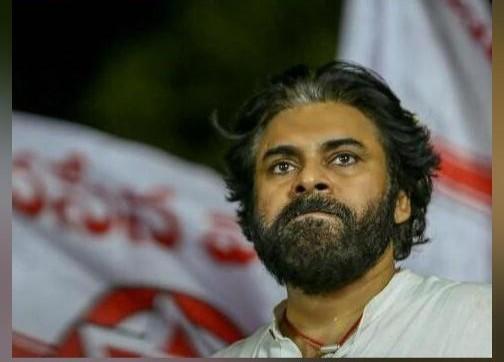
Like PM, Kalyan switches to English while speaking on J&K attack
In a surprising yet significant move, Andhra Pradesh Deputy Chief Minister Pawan Kalyan switched from Telugu to English during a mid-speech to condemn the recent terror attack in Jammu and Kashmir’s Pahalgam. This unexpected shift in language underscores the gravity of the situation and the need for a unified response against terrorism.
The incident occurred during a public gathering where Kalyan was speaking about the attack. Initially, he was speaking in Telugu, but as he began to emphasize the severity of the incident, he suddenly switched to English. “The attack has been one of the darkest days in entire country,” he said, his tone grave and solemn.
This sudden change in language is reminiscent of Prime Minister Narendra Modi’s actions earlier. After the Pahalgam attack, Modi switched from Hindi to English in a televised address, sending a strong message about India’s unwavering commitment to fighting terrorism. Kalyan’s decision to follow suit demonstrates his solidarity with the Prime Minister and the nation’s collective stance against terrorism.
The attack in Pahalgam, which left several casualties, has sent shockwaves across the country. The incident has raised concerns about the spread of terrorism and the need for effective countermeasures to combat this growing threat. By switching to English, Kalyan and Modi are emphasizing the importance of unity and cooperation in the fight against terrorism, transcending linguistic and regional barriers.
Kalyan’s surprise switch to English has sparked a debate about the role of language in public discourse. Some have argued that the use of English in public speeches is a sign of growing globalism and the need for effective communication across linguistic boundaries. Others have suggested that the switch to English is a deliberate attempt to convey a stronger message, one that resonates with a broader audience.
Regardless of the motivations behind the switch, it is clear that Kalyan and Modi are determined to send a powerful message about India’s stance on terrorism. By using English, they are able to reach a wider audience, including international leaders and organizations, and emphasize the need for collective action against this global menace.
The use of English in public speeches is not a new phenomenon in India. Many politicians, including Prime Ministers, have used English in their addresses to convey a sense of internationalism and to emphasize the importance of global cooperation. However, the recent switch to English by Kalyan and Modi is significant, as it comes at a time when the country is facing a growing threat from terrorism.
The Pahalgam attack has highlighted the need for increased vigilance and cooperation between different levels of government, as well as between India and its international partners. By using English in their speeches, Kalyan and Modi are emphasizing the importance of this cooperation and the need for a unified response to the threat of terrorism.
In conclusion, Pawan Kalyan’s surprise switch to English during a speech about the Jammu and Kashmir attack is a significant development in the ongoing fight against terrorism. Like Prime Minister Narendra Modi, Kalyan is using English to convey a strong message about India’s commitment to fighting terrorism and to emphasize the need for collective action against this global menace.
As the country continues to grapple with the aftermath of the Pahalgam attack, Kalyan’s decision to use English in his speech is a powerful reminder of the importance of unity and cooperation in the face of adversity. By transcending linguistic and regional barriers, Kalyan and Modi are sending a strong message to the world that India is united in its determination to combat terrorism and protect its citizens.
News Source:
https://youtu.be/hl6_hZOnkFA






